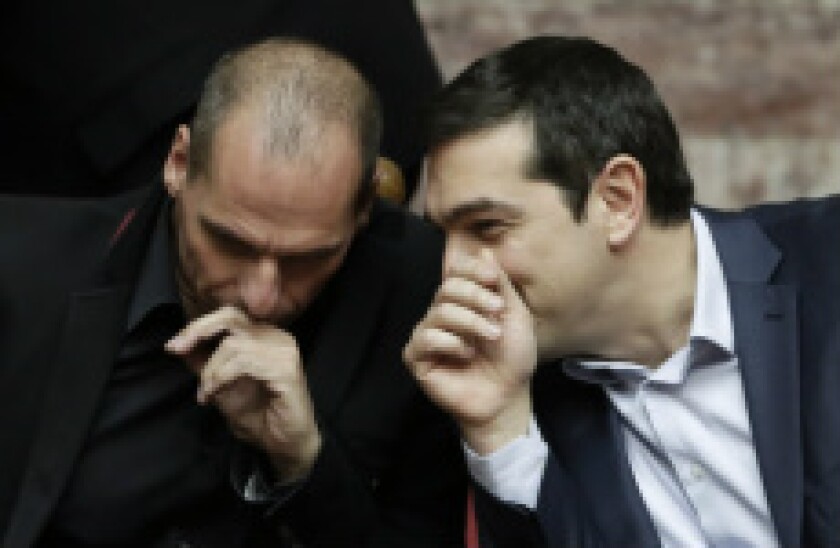In the Tony Scott-directed 2001 film ‘Spy Game’, released the same year the first euro coins were minted, Robert Redford plays a CIA operative who is about to retire when he discovers his former protégé Brad Pitt has been arrested for spying in China.
Battling internal politics to free the younger man, Redford decides to hide certain documents from his superiors and hands them to his assistant, who questions whether he isn’t being a little paranoid.
“When did Noah build the Ark, Gladys?” he says. “Before the rain. Before the rain.”
This is what Europe’s architects failed to do. There was a time in the early noughties when it felt like the single currency was spreading mutual prosperity across the continent. When Europeans felt very European indeed. It was when member states were embarking on huge infrastructure projects with cheap money.
Before the rain
In those dark days in 2011 a lot of progress was made, progress which continues to bear fruit today. Europe’s fragmented banking system now has a single common regulator, national budgets are scrutinised at supranational level and something resembling a workable resolution mechanism to protect taxpayers from bank failure has been put in place. More potentially beneficial work is underway with the Capital Markets Union, which should at the very least make the single market a little more single.
But much of that good work looks feeble in the face of Greece’s demands for a better deal on its membership of the Eurozone.
The best way to resolve the problem would be debt mutualisation, for Europe to stand behind Greece’s debt and put the threat of default to bed once and for all. Europe needs greater integration, and more giving up of sovereignty, but at a time when relations between the major actors could not be more fractious.
Prime minister Alexis Tsipras was in Berlin on Monday for a very fundamental showdown with Germany’s leader Angela Merkel, who is under pressure from her own party to be tough on the southern upstart. Both struck a conciliatory tone, insisting the meeting was not to discuss Greece’s rescue package. Which is just as well, because they could scarcely be further apart in their views of what it should look like.
The rhetoric was still there. Tsipras said he had not come to beg for money. He recently reignited Greece’s claims to billions in reparations from Germany for the country’s treatment by the Nazis during World War Two. He may well be pandering to the extremist faction of his Syriza party, but the Greek people elected that party. A party whose manifesto effectively rejected everything that being a committed member of the euro area means, such as paying debts.
His mandate is strong. His people are suffering, and they feel, rightly or wrongly, that they are suffering at the hands of Brussels and particularly Berlin. The ‘Great Recession’ has focused minds. What do we get out of this arrangement? Who is benefitting while I am losing?
Politicised p
ayments
But in every stand it makes against the troublesome Greeks, Germany simply reveals how unworkable the union has become in its current form.
Germany’s exports were €90bn in January while Greece’s were less than €2bn, according to Trading Economics figures. Germany has averaged €26.5bn monthly since 1950, while Greece has averaged €1.6bn since 2001.
The money the European Central Bank is printing to buy Eurozone government and agency bonds — €26bn as of Monday — will in large part end up in the hands of wealthy northern institutions and individuals, while Greece is expected to get by on a frankly implausible diet of primary surplus and extra austerity.
ECB president Mario Draghi said on Monday that QE and economic reforms were “complementary”. Translation: we are helping you out with a cheaper euro, you hold up your end.
Germany is the chief beneficiary of a cheaper euro, with its manufacturing sector ready to sweep up surging foreign demand. Germany’s Purchasing Managers’ Index, which tracks manufacturing and services output, hit an eight month high of 55.3 in March.
Kicking the can
But it is also a temporary fudge. This is a full on solvency crisis, not a “cashflow issue”, as Tsipras so delicately put it. Greece needs another sizeable debt write-off, but Merkel cannot countenance one and so the Greeks will return again and again for renegotiations.
What happens when the Greek economy does not recover quickly enough under the compromise agreement? When half its young people remain out of work? The people will demand a better deal, and if Syriza can’t deliver one they may elect someone who will.
European yields are at record lows and core-periphery differentials are also flying in towards pre-crisis levels (with the exception of Greece). This is an uncomfortable dislocation from reality. It isn’t necessarily wrong for bond investors, of course. Even after a Grexit, the odds of which George Soros now puts at 50-50, the ECB could throw even more money at periphery government bonds and cling on to Greece’s neighbours.
Then the question becomes who is next. Which party in which country will tell voters it doesn’t have to be like this?
Long term fiscal union remains the only endgame if the Greece situation is to be avoided time and again in the future. But that Ark was never built and Europe is now up to its neck in the flood.
If they were going to sell the European people such a radical idea they had to do it while the sun was shining. As it is there is a good chance two or three generations will never believe further integration is a good idea. It may already be too late for Greece.

